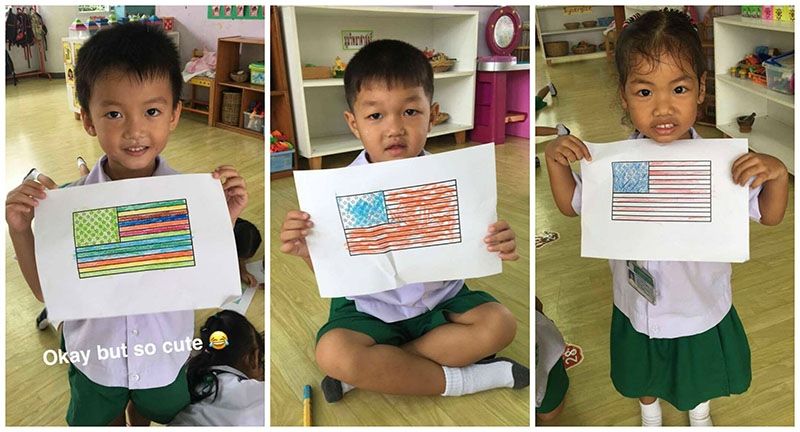Teaching Abroad on the Fourth of July

This week, the United States of America celebrated its 241st birthday. Yep, for 241 years we’ve been flying flags, setting off fireworks, and scarfing down hot dogs by the lake to celebrate the independence of our nation (well I don’t know how they did it at the beginning, but you get the idea). Like any holiday, those abroad probably celebrated a bit differently whether it was with a group of fellow Americans, with local friends, students, or host families. But just because Independence Day might have felt a little different doesn’t mean you’ve forgotten the traditions of celebrating the nation’s birth.
Something that exchange workers and teachers have probably realized at one point or another during their time abroad is that compared to the rest of them, the United States is a baby of a nation state—a mere 241 years old! I bet each and every one of you can tell me about a time you’ve stood before an ancient temple in Thailand or an archaeological site in Peru or a thousand year old church in Italy and thought to yourself “holy moly, this place is old!” You might have also realized that the U.S. is a blip in time compared to countries that have existed as states for several millennia.
While most teachers will be coloring American flags this in the classroom around this time (hello easy peasy lesson on color names and culture!), it might be good to take a step back to think about what that flag means to you and the impressions of it that you would like to leave behind. You are as much a teacher as you are a global ambassador and for some of your students, you are their first impression of America! Think about how excited you are to learn about the Wai in Thailand, or the meaning of the color red in China, or the history behind Flamenco dancing in Spain. Your students feel the same way about your culture, so spread the wealth!

Teaching abroad is rewarding in so many ways (are you nodding with me here?). In addition to the obvious educational aspect, when you’re an ESL teacher abroad, you get to facilitate a rich exchange of language and culture. Teachers learn quickly that they are not only there to give classroom instruction, but as a liaison for their country. They also know that the huge responsibility that comes with that role can be both daunting and exciting! When in doubt, talk to other teachers. Ask how they might be presenting holidays or other cultural aspects or what they think of your lesson plans. Remember, we are all in this together as cultural representatives.
Ok, so no pressure here – let’s just take this one flight at a time. Start your lesson with a tune we all know this week, happy birthday to you, America!